
At the start of the first lockdown in March 2020, artist, gardener and current landworker Rufus Biddle found himself in the same situation as most of the population in the UK, newly unemployed and living in an urban area. With the only green space within walking distance being a balcony, ideas of nature and the relationship with had to be shifted quickly.
Understanding that nature isn’t always something that you have to be a part of to enjoy, but something to watch from a distance, take note from and even in London, deepen our connection with. In this piece, Rufus takes in the different gardens he can see from his South London home, accompanied by photos of his own balcony.
A South London Balcony
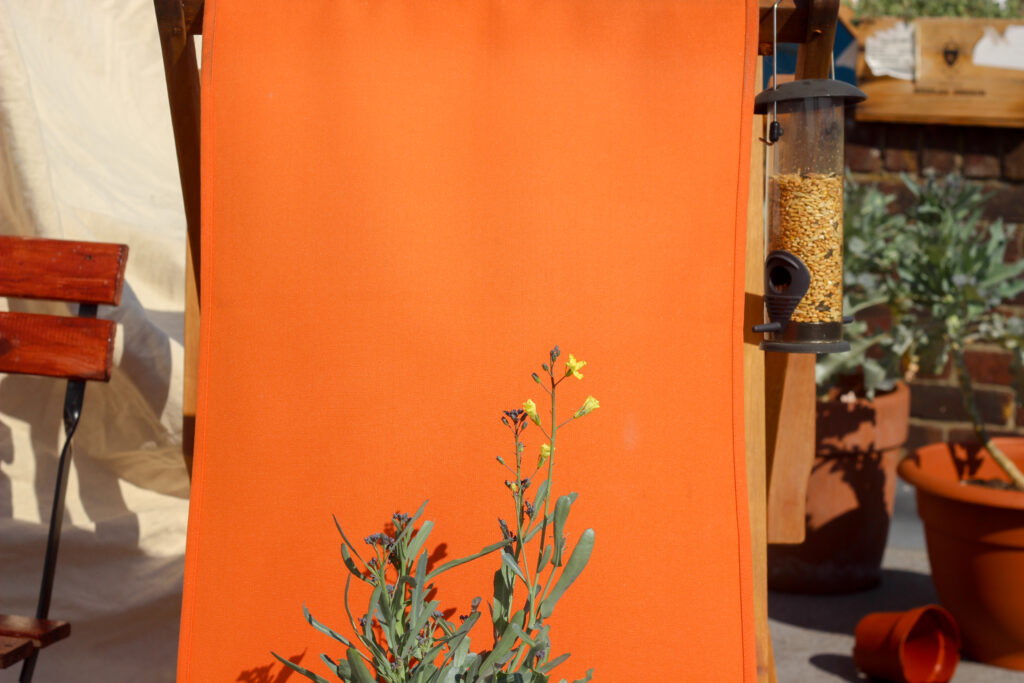
Looking down from a South London Balcony there are a few things that come to mind, rent being the first; followed by concrete, cars and the urban fox, with pollution preceding swiftly. One thing that people wouldn’t tend to think about is nature.
Nature?
Right outside of my front door sits an expansive estate, from here I can see eight tower blocks and The Shard, whilst the city sits in the distance. Walking through my flat and onto the balcony the view is not much different; only seven tower blocks, a power station and a never-ending architectural battle between council owned houses and new build apartments. Directly beneath my South London Balcony sits eleven houses, and their existence is only amplified by the luxury flats that sit adjacent to them. However, these eleven houses all have one thing in common, something it doesn’t share with any properties in the vicinity.
A Garden.
And the view from my South London Balcony is the perfect one to be able to see into all eleven gardens, it is also a view into the lives of the people who live here. You can tell a lot about a person from their garden.
Functional or ornate, to take from or look at, a space to gather or a space to hide? The smallest of things can have a real effect on how we act in this space. Through what we plant, grow, bring into this space and the arrangement of – something as simple as garden chairs facing away from the house or a picnic bench where we all sit together. The garden can be a true reflection of the lives of those who live there and can also have a drastic effect on how you spend your free time, you know… your life!
Garden 1
The first garden is the one that sits farthest from me, my view is partially obstructed by the fence from the next garden on. Outside the back door sits a lovely, roofed bench, weather worn and with enough space to seat two – and this perspective changes everything.
Weeds as tall as corn! No grass in sight other than the theoretical Zea mays and it’s a forest down there. A concrete paved floor and stone planters sit around the garden, it would be the perfect place to grow veg, but much easier to let wild, and probably more fun too.
It would be a job and half to tear down this forest, but who wants deforestation? Who has the time for that!
Everything about this garden screams that the owners want it to be as low maintenance as possible, but mother nature (or in a city – brother nature) has a different plan. A plan to not just survive a battle of bricks and mortar, but to thrive, no matter the circumstance. The people who live where work with brother nature, not against him.
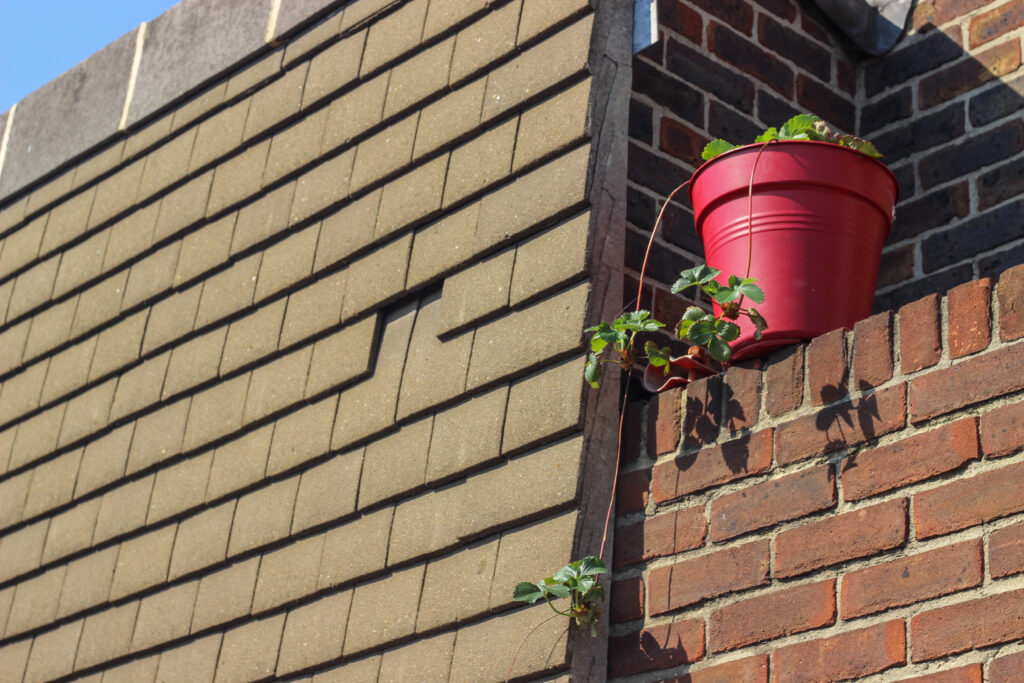
Gardens 2 & 3
These gardens are very similar, both what I imagine the archetypal inner-city garden to be, not that there’s many of these at all. Both share a steady stream of clothes that are out to dry with lawns pristinely cut, yet never a mower in sight.
Push bikes, step ladders, shoes, muddy football boots and broken appliances clutter the space outside the back doors, then open up to an almost perfect square of grass with a shed at one side – that’s it.
Both gardens also share a lack of chairs, by that I mean none. How can you have a garden without a chair to sit in? Madness. This space plays as an extension of the home and if they could they’d probably turn the whole space into a conservatory, not a bad idea that. Maybe they don’t want to be outside, or just don’t have the time to be. There are so many spaces to be in and this space might not be for them, or maybe they are just too jealous of next door to even be out here.
Garden 4
CHAIRS! There must be at least forty of them stacked five high in the corner closest to the house! You know, the kind you used to have in school, they’re always about to break and made out of that cheap plastic.
This garden also has an extra shed – every garden within my view has a shed, or had a shed, either by their presence or the divots they’ve left in the grass, but here we have two. The second one takes up a decent amount of space, you could comfortably fit four people standing upright, or an extra forty chairs, which seems more likely.
So why all of the chairs?
These people, they’re entertainers. Along with the mass of chairs, other notable features of this space are the two barbeques, a broken washing machine… and the people. Every weekend without fail, and usually a couple of nights during the week every chair is in use, the space has been activated.
Smoke from the barbeques rise whilst the carnival music blasts through the wind tunnel between their garden and my balcony, the sound from all of the friends and family carries towards me, as if they are here. It’s nice.
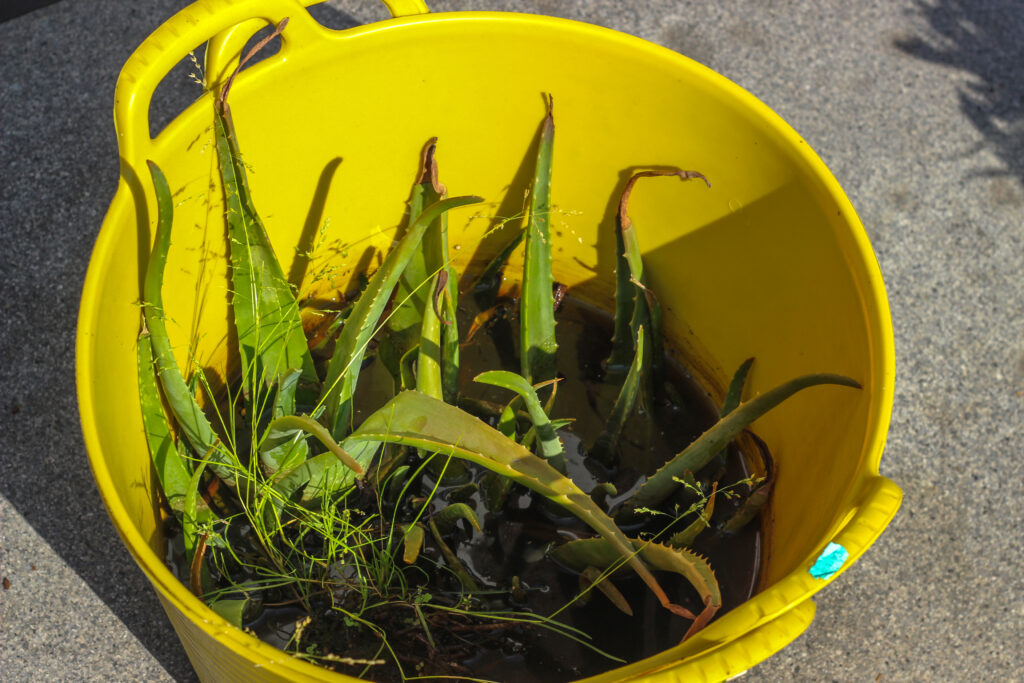
Garden 5
The job they have done on this!
In the past year the change in this space has been drastic, it’s been a real joy to watch. We’ve gone from a garden that is very similar to that of 2 & 3, to a very interesting job – the most functional garden in London? I really want to knock on their door and ask what’s going on, this planting job interests me so much.
1. Place seeds in potting trays and wait for signs of life.
2. Once bigger than the potting tray, plant the seedlings into the ground.
3. Move the plants out of the ground and into the DIY raised beds you made (see other instructions)
4. Then disassemble the beds so that you can re-make and move around the garden (remake spare wood into a bench)
5. Harvest.
I see strawberries, carrots, herbs of all kinds and leafy greens down there, an impressive yield for such a small space. The people who live here are always getting the most out of it.
Here they eat, drink, play, fight, hang clothes, use as storage, repair homewares, ride motorbikes – anything that you could do in a garden, is done here.
Gardens 6 & 7
These two spaces in many ways are the same, but in ways slight – they’re so different.
Garden 6 has a table with two chairs facing away from the house and Garden 7 has a picnic bench. A simple change in seating changes what we can look at and how close someone sits, even though there’s no picnic there’s a feeling of communality.
Garden 6 has three potted plants by their back door whilst Garden 7 has six potted plants along with several more planted in the ground along with a fruit tree accompaniment. The simple way of having both plants in pots and the ground is a conscious nod towards what nature can look like, and the domestication of it.
Garden 6 has a clothesline, but Garden 7 does not, it has a trampoline instead.
It’s important at home to have affordances for your kids, ‘You’re allowed to play in this space’. Activation of space into place. A child’s first, and arguably most influential interaction with nature is in the garden. If it weren’t for the football posts in my garden growing up then I would have been less likely to venture out, maybe? The football posts, trampoline, swing or whatever, it’s an invitation in.
A garden is important to an adult, of course – but it can be influential to a child.
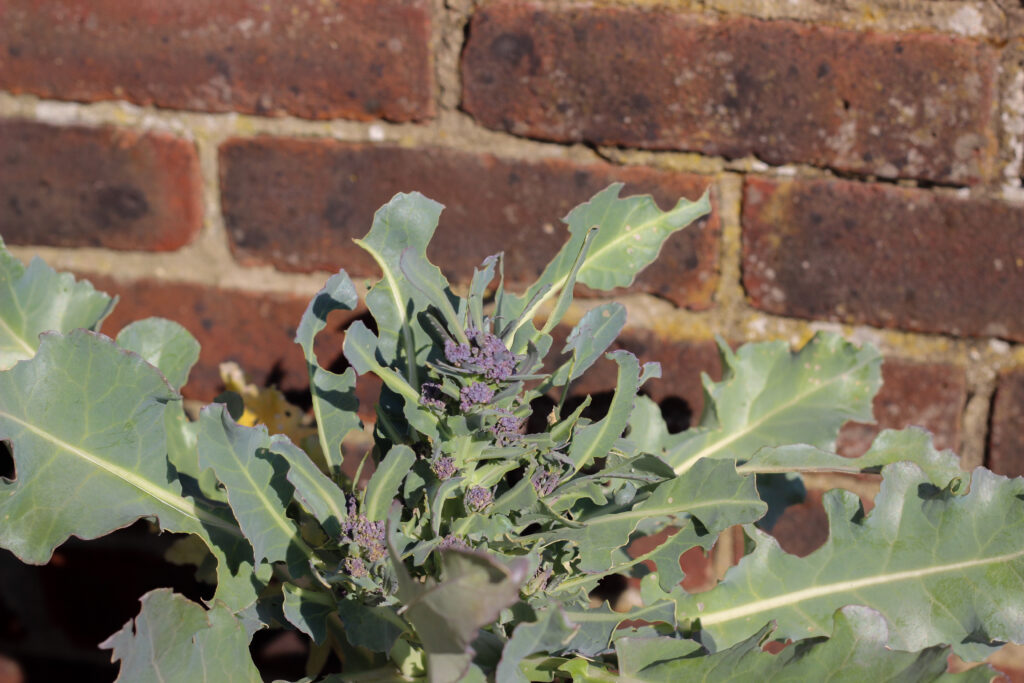
Garden 8
The story of how a family put the needs of the kids before their own. The space is larger than those before it and by almost double, the rest follow suit.
With more space comes more luxury – the main luxury being space itself. A few months back, the people who lived here decided to put gravel down over a section just outside their back door, this area alone being the same size as the preceding garden. Turn over the soil, place down plastic sheeting and shovel limestone gravel on top – jobs a good’un. But they misjudged the amount of gravel needed and only by about 2 or 3 bags, but this means that you can see a slight plastic trim that acts as a border of the gravelled area.
One month on and another payday later, you’d expect more gravel to be bought in and then jobs really a good’un. But then the heatwave came around, along with a pretty large paddling pool and not a speck of new gravel in sight. These kids will have so much more fun in this pool than on any gravel – this pool harbours more laughter, love, enjoyment and excitement than that patch of unfinished gravel over there ever could.
Garden 9
So, I don’t see the need to write about the trampoline, potted plants or the gravel on the ground. This is all about astroturf and how much I hate it.
Ugh! I hate the stuff, honestly why?! Fair enough if you can’t afford a mower or don’t have the time to weed and maintain, but I would find the time. I understand it’s very easy for me to say this from up here, on my balcony, dreaming of gardens.
Somebody should be able to fall over in a back garden and not have to worry about drawing blood on ‘grass’. The disconnect here is massive and I think we know that there’s a problem when plastic replaces grass, how have we got here? Plastic should never replace grass.
Is astroturf a good way to start a child’s relationship with nature? Most of what we have in the garden, not only this one, but most gardens across the country, is in some way manufactured and there’s no problem with that. We need our sheds, non-native plants, swings, barbecues and footballs – but grass is one of the only things in the majority of gardens up and down the country that is real. It’s native and would be here without us, if you could stop us putting plastic all over it.
Grass shouldn’t graze you, you should graze on grass.
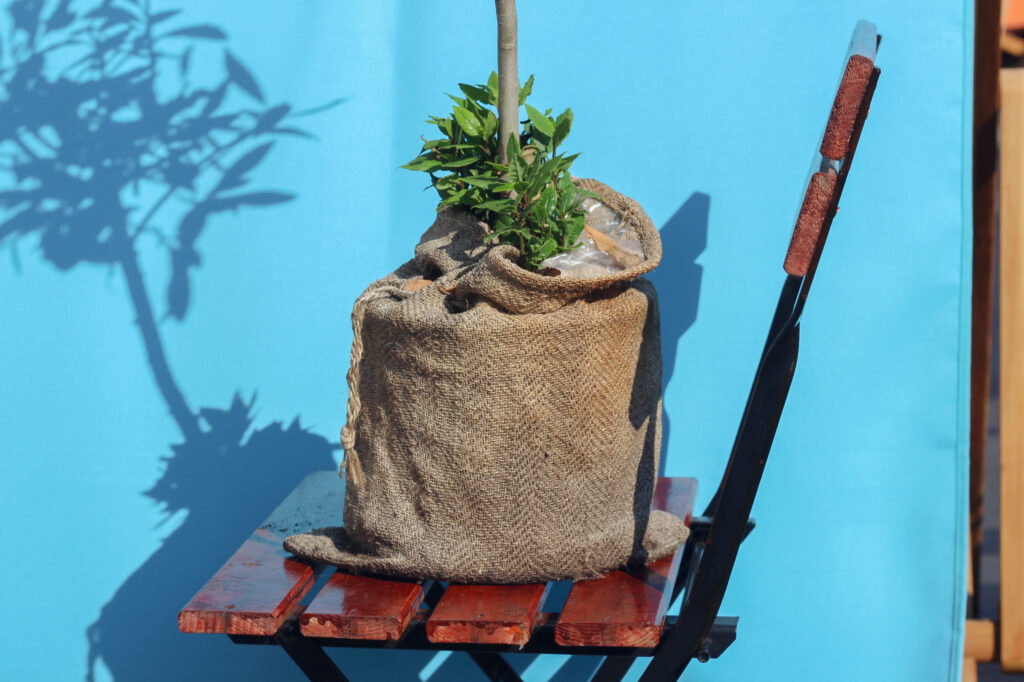
Garden 10
The first with a tree!
A stunning willow! It’s gorgeous, the next nearest tree is in the garden after, then that’s all there is around here. The tree sits central to the garden and hangs over, covering the space like another cloud in the sky. Barbeque at the back, a canopy swings over the middle with spades, buckets, trowels, watering cans, gloves and a wheelbarrow dotted all over the place – yet the grass is so long.
Is this garden past the point of no return, or is it in the nether? It hasn’t changed in months, yet the tools haven’t gotten rusty – it looks like an exhibit of how one should tend a garden. A branch larger than me sits in the middle taking up a fair amount of room, it looks super cool and out of place – that’s part of it.
I never see these guys working in the garden and from the layout it could go either way you know, this could be the space they like the most, or the least.
I literally NEVER see these people, maybe a child once or twice? Our cycles just don’t match up, they’re probably having breakfast in the garden, whilst I eat mine in bed and they read in bed whilst I read outside. Is it because the tree casts a shadow over the garden for most of the day? Possibly, but next door got over that pretty well.
Garden 11
Gardens 1 & 11 are my favourite, they’re completely different to all those encased within.
A large eucalyptus tree sits to the right side of the garden, so large in size that it provides a glorious view for everyone in the flats adjacent, like another cloud in the sky. I bet the smell is something else – I can hear it at night. A smaller eucalyptus tree sits behind the larger one, mother and child, just like the family who live here.
A long path extends down the garden from the house, Garden 9 also has this path, but I was too astro-infuriated to take note. It branches outwards at the end to a table and cute set of chairs, the shadow of the eucalyptus tree extends gracefully to keep the table and chairs in the shade, whilst the hammock and barbeque at the end sit in full sunlight throughout the day.
A space engineered around the sunlight that has been offered to it. There is no grass in this garden, but that’s fine though… no honestly, it is! They’ve got wood chip instead, the difference between this space and Garden 9 is stark – these are the spaces which require the least amount of maintenance. You can literally swap astroturf for woodchip and done, same effect but better? Maybe it’s not green, but at least it’s real.
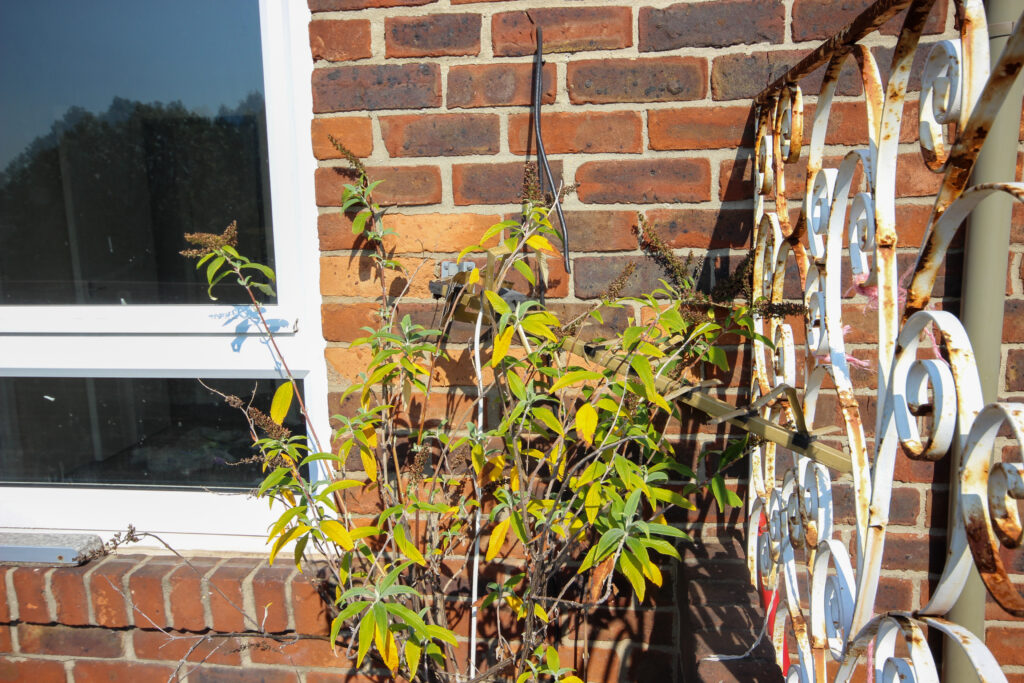
The view from my South London Balcony is an extremely diverse one, but within my view sits a cluster of houses that you would never have thought of, in all of this, share a massive portion of green space in this postcode.
It is never going to be like this for everyone, why give someone a garden when you can charge more rent for more building? But just as these gardens hold different functions and are not all used as gardens – we can subvert the spaces we have, and turn them into whatever we want, and I want a garden.
Inspired by this view I have made the most out of my space, here I have grown carrots, broccoli and strawberries – I dry my washing, have friends over as much as possible, eat and drink but mostly, I dance. This space… this garden, it’s the cheapest space going… yet the one with the most potential. It’s influential.
Something else that all of these gardens have in common, minus my own, is that families that live there; families with kids.
Adults decide how a space looks and ultimately how we act in them, though in these spaces it’s not the adults that get the most out of it, but the kids. The kids are the ones who spend the more time here, and this time in this space, will have a profound effect on how they view nature as an adult. The child who grows up on grass might think about our green world in a different way than the one who grows up on astroturf.
Nature or nurture?
In the garden, it’s both.
—
